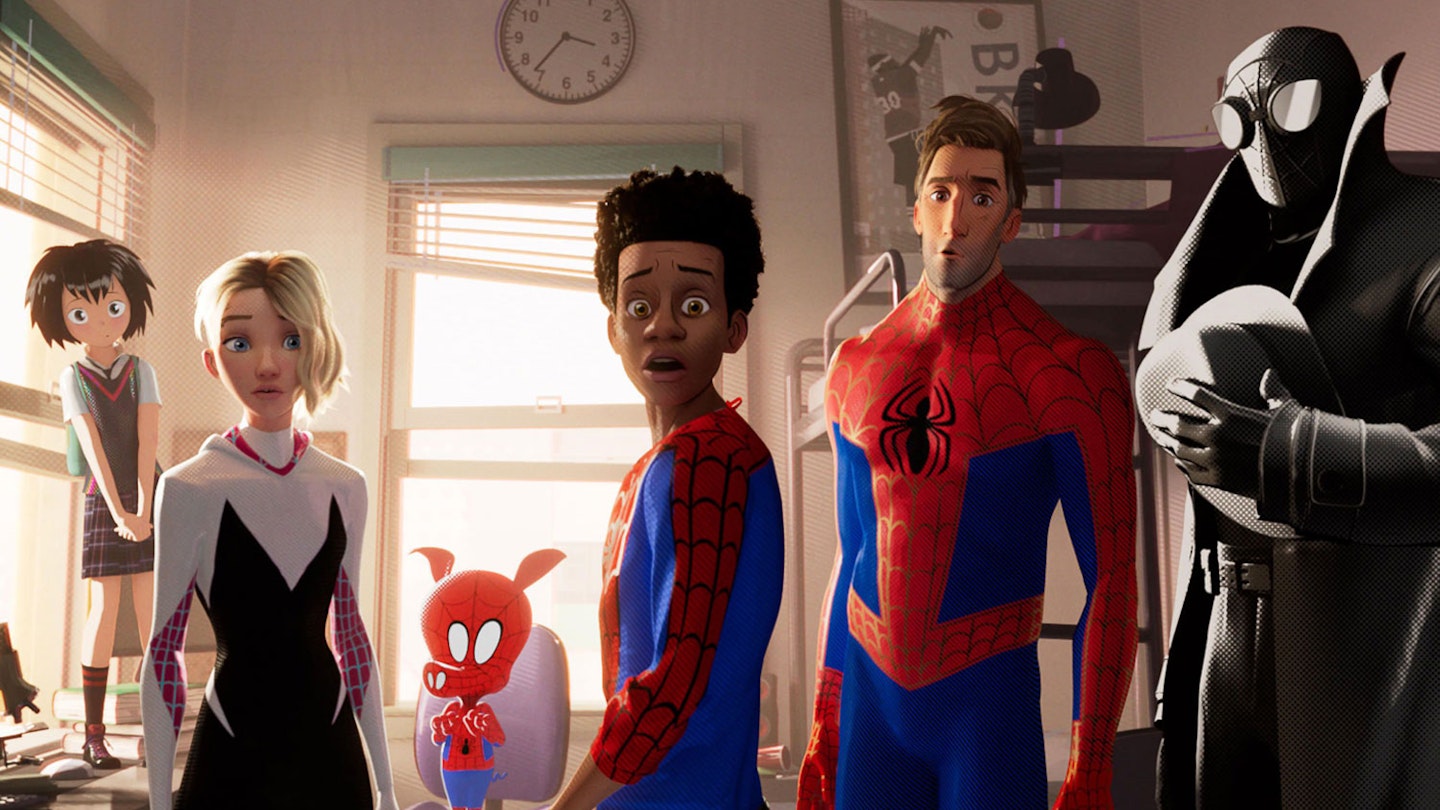It’s nearly time to reveal the top 10 list in our countdown of the best films of the 21st Century – but before we get there, we have the first half of the top 20 to unveil. The list has been compiled by combining votes submitted by Empire critics and rankings sent in by readers, resulting in a definitive rundown of the 100 greatest post-2000 movies.
You can already read numbers 100 – 91, 90 – 81, 80 – 71, 70 – 61, 60 – 51, 50 – 41, 40 – 31, and 30 – 21 on the list – and below you’ll find the next ten movies to have found their way into the top 100. Stay tuned to Empire Online as we unveil the final piece of the list, and look out for more information coming soon about Empire’s upcoming 100 Greatest Movies Of The Century magazine issue and podcast special.
20. Interstellar (2014)
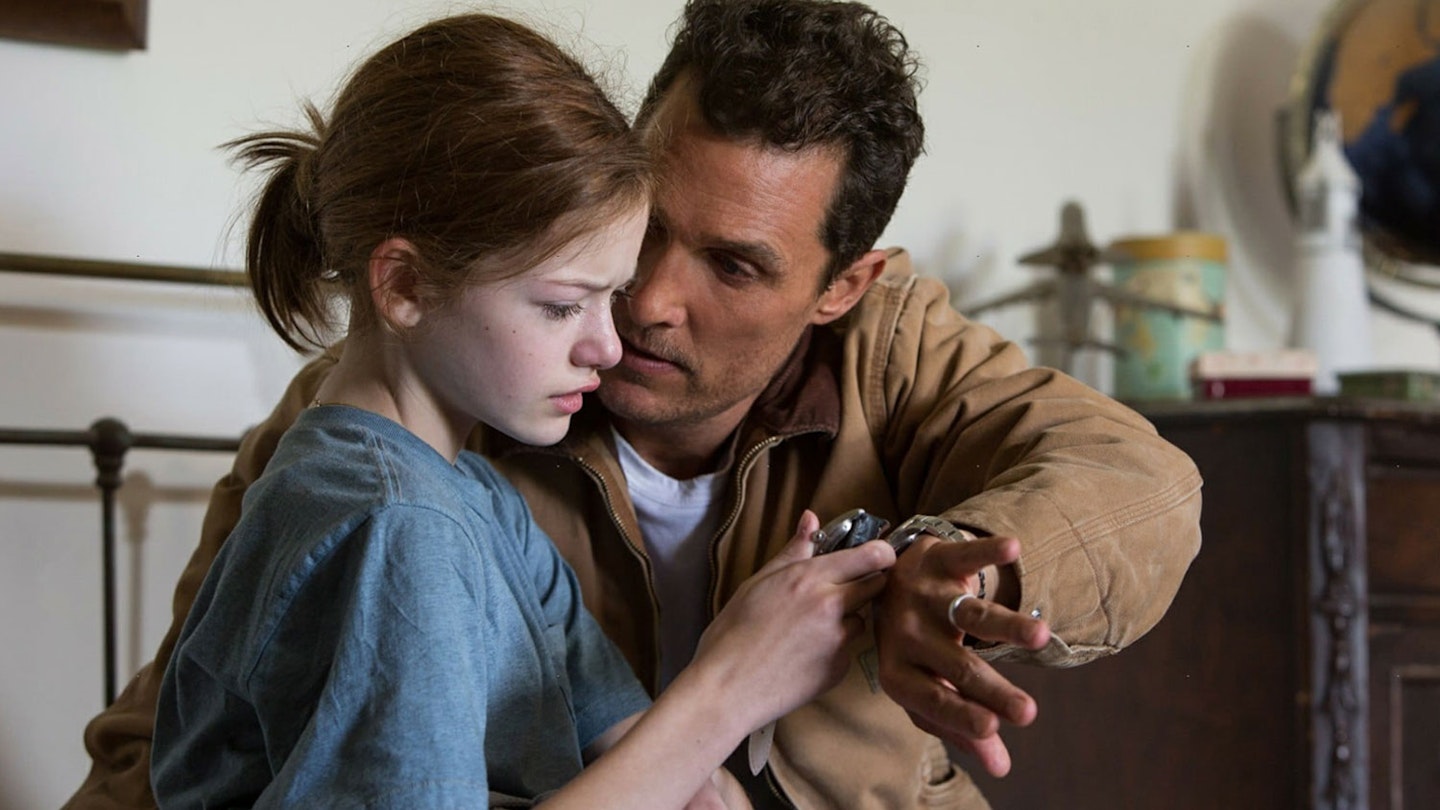
Christopher Nolan movies don’t tend to be emotional. But in blasting off to the edge of a black hole, the filmmaker delivered his most heartfelt work – a father-daughter story set against the infinite cosmos, about the way love transcends time and space. Considering how intergalactic and metaphysical it all gets, the opening act – depicting a Dust Bowl-inspired future Earth in which corn is the last viable crop – is thrillingly grounded, making it all the more impactful when NASA pilot-turned-farmer Coop (a peak-McConaissance Matthew McConaughey) takes to the stars in search of a viable new home for humanity. From its planet of cliff-high waves to its astonishing evocations of light-bending wormholes (complete with realistic physics), Interstellar is Nolan at his most expansive – but whether it’s that trans-dimensional bookcase scene, or the heartbreaking moment Coop watches his kids grow up in a montage of video messages having emerged from a planetary expedition that turned mere hours into decades of Earth-years, it’s beautifully human. A Nolan movie that taps your tear-ducts while testing your grey matter.
19. The Wolf Of Wall Street (2013)
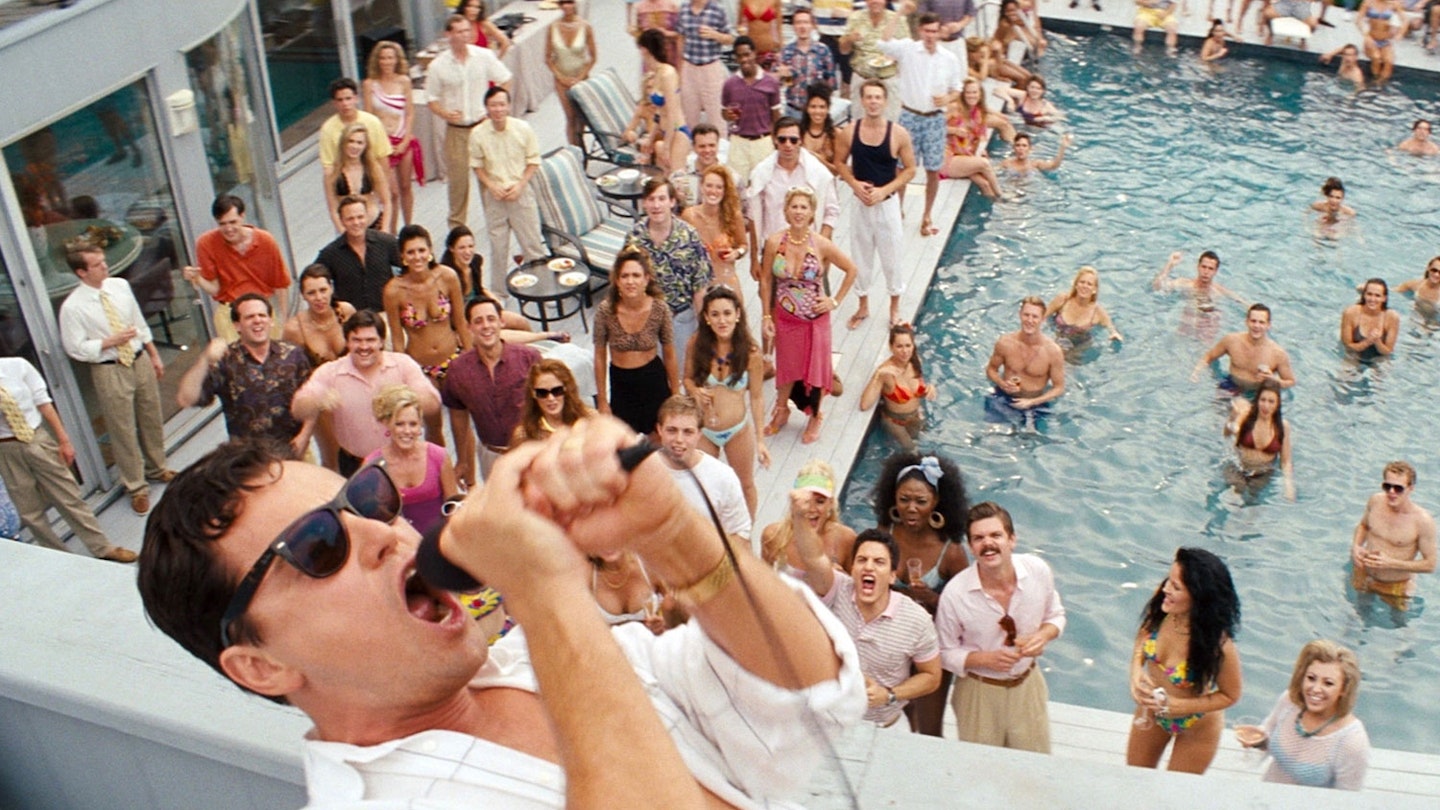
The oeuvre of Martin Scorsese largely hinges on crooks and explorations of religion. The Wolf Of Wall Street is both – a film about a crook who’s an evangelical preacher of America’s one true religion: capitalism. The story of Jordan Belfort is one of sickening wealth and rampant excess which Scorsese spins into a three-hour head-rush of greed, drugs, sex, naked marching bands, and stock market trickery, the filmmaker indulging all of the whiz-bang editing and stylistic tricks at their most in-your-face. Sweeping tracking shots, fourth-wall-breaking, rat-a-tat voiceover? They’re all here, waiting to be hoofed up like a whacking great line of cinematic cocaine. If the film itself revels in all the decadence, it’s a damning indictment of Belfort – a new kind of American gangster, a next-level white-collar criminal who doesn’t even have the honour to call himself a thief – and the nation that offers him such easy redemption. But that’s why The Wolf Of Wall Street works so well – it sells you a hollow nightmare so slick and glossy that you’re almost tempted to buy it.
18. Inside Out (2015)
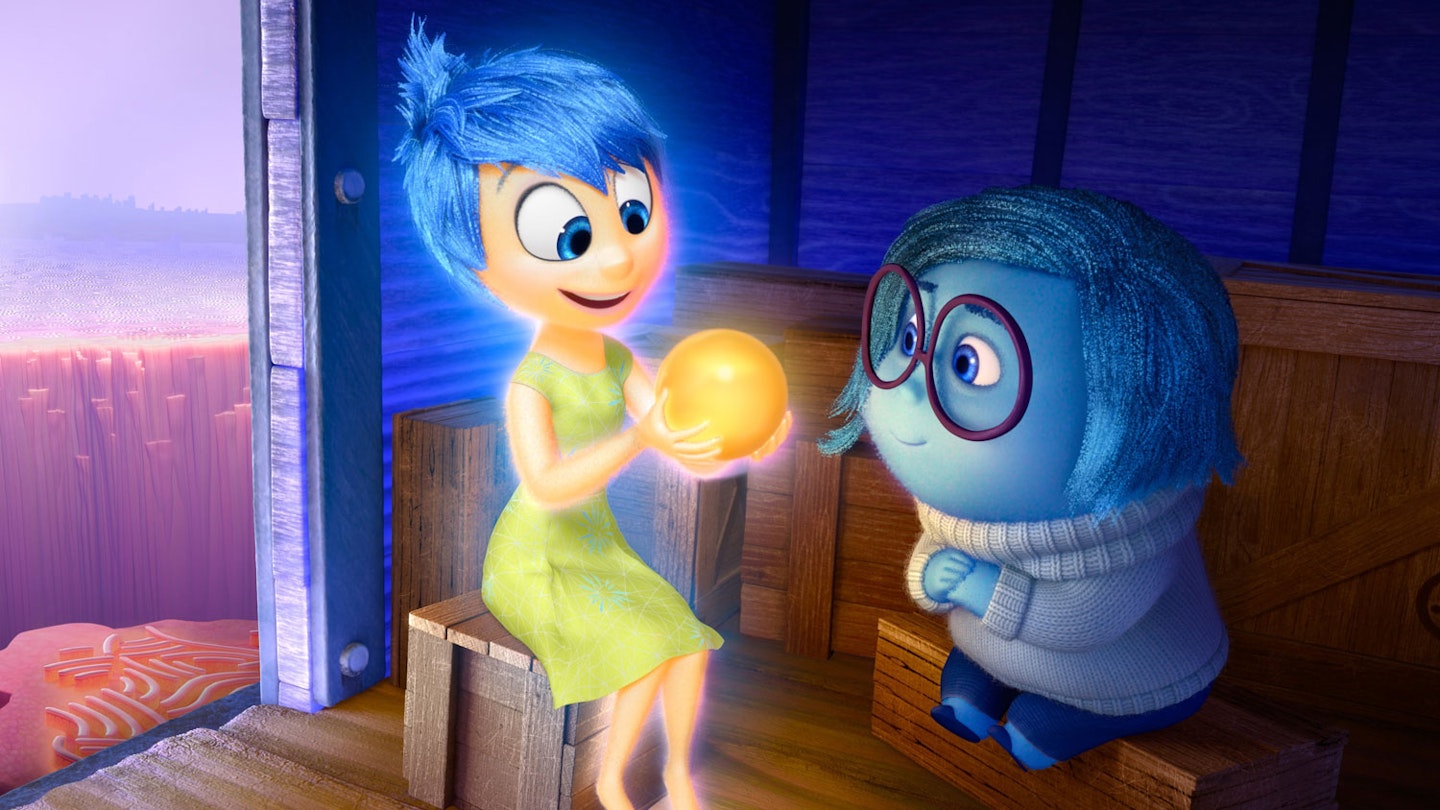
There’s emotionally-intelligent storytelling, and then there’s Inside Out – an intelligent story about emotions, offering remarkably perceptive insights into the human condition in an all-ages adventure. In anthropomorphising the feelings of almost-teenager Riley – Joy, Sadness, Anger, Fear, and Disgust – during a time of turbulence, director Pete Docter combines the poignancy of Up with the imaginative world-building of Monsters, Inc. and hits upon something real about the way we process memory and emotion. It’s impossible to not be affected by it – from the moment Riley is born and experiences pure joy upon seeing her parents for the very first time, to its closing argument that it’s ok, necessary even, to feel and embrace sadness. Inside Out is as psychologically-astute as a Christopher Nolan movie, dazzlingly creative even by Pixar standards (Dream Productions! Abstraction! The train of thought!), and destined to give generations of audiences a greater understanding of their own innermost feelings. Just, whatever you do, don’t mention Bing Bong.
17. Mulholland Drive (2001)
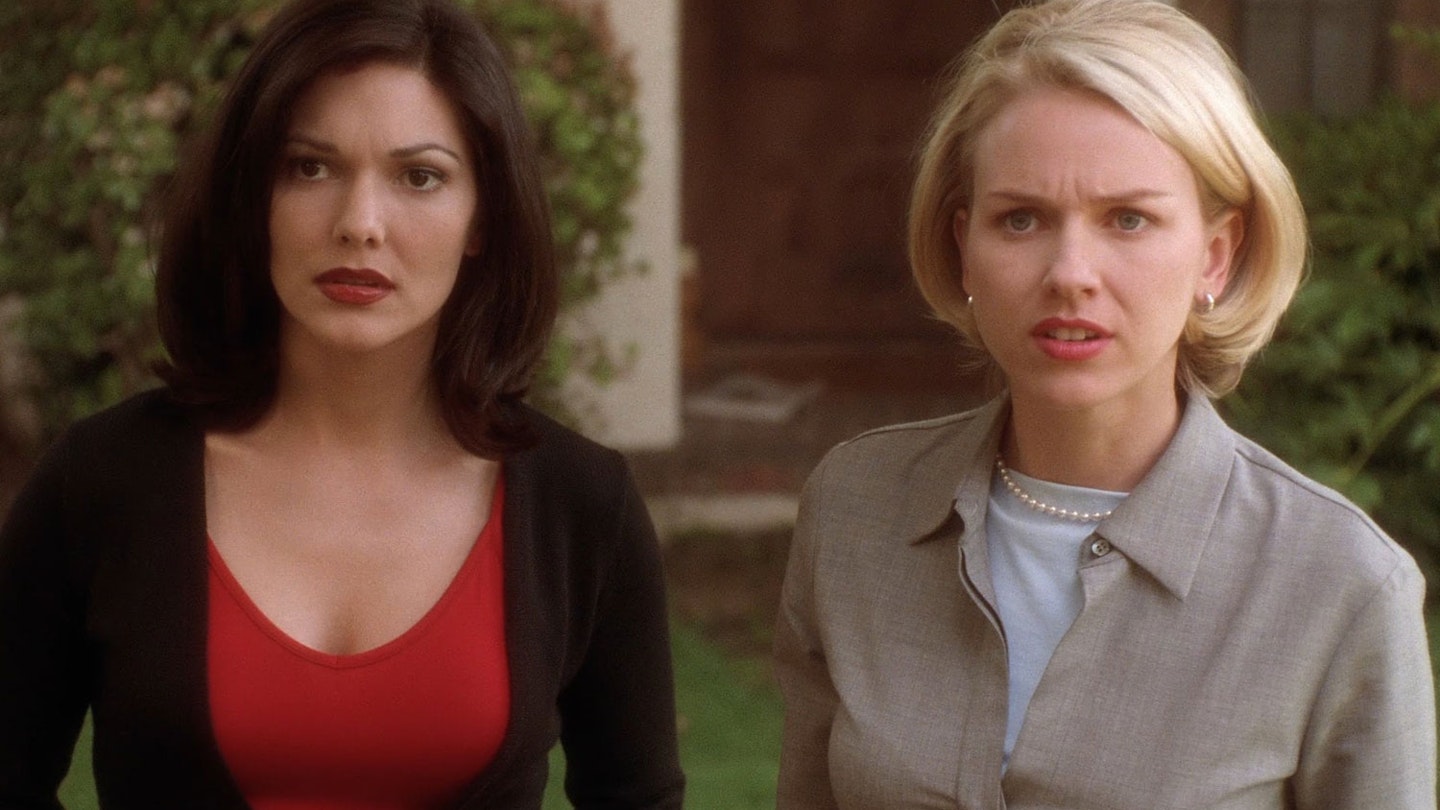
Expanded from the pilot for an abandoned TV series, there’s a sense in Mulholland Drive of invention being spun from necessity – but what invention. David Lynch’s oppressive Hollywood nightmare is an unending narrative loop in which Naomi Watts plays two characters, each of whom is dreaming the other. Christopher Nolan and Wes Craven made iconic films centred on dreams, but it’s almost uniquely Lynch who seems to understand how dream logic actually works and is able to translate it to the screen. Peculiar events are presented as if they’re the most normal things in the world – and while meaning is there, it feels like it’s just out of reach. Strange characters drift in and out, behaving oddly and making gnomic pronouncements. Disparate, apparently unconnected scenes somehow coalesce into some sort of cohesive whole. You’re not sure what you’ve even seen, as the film ends at its beginning.
16. Spider-Man: Into The Spider-Verse (2018)
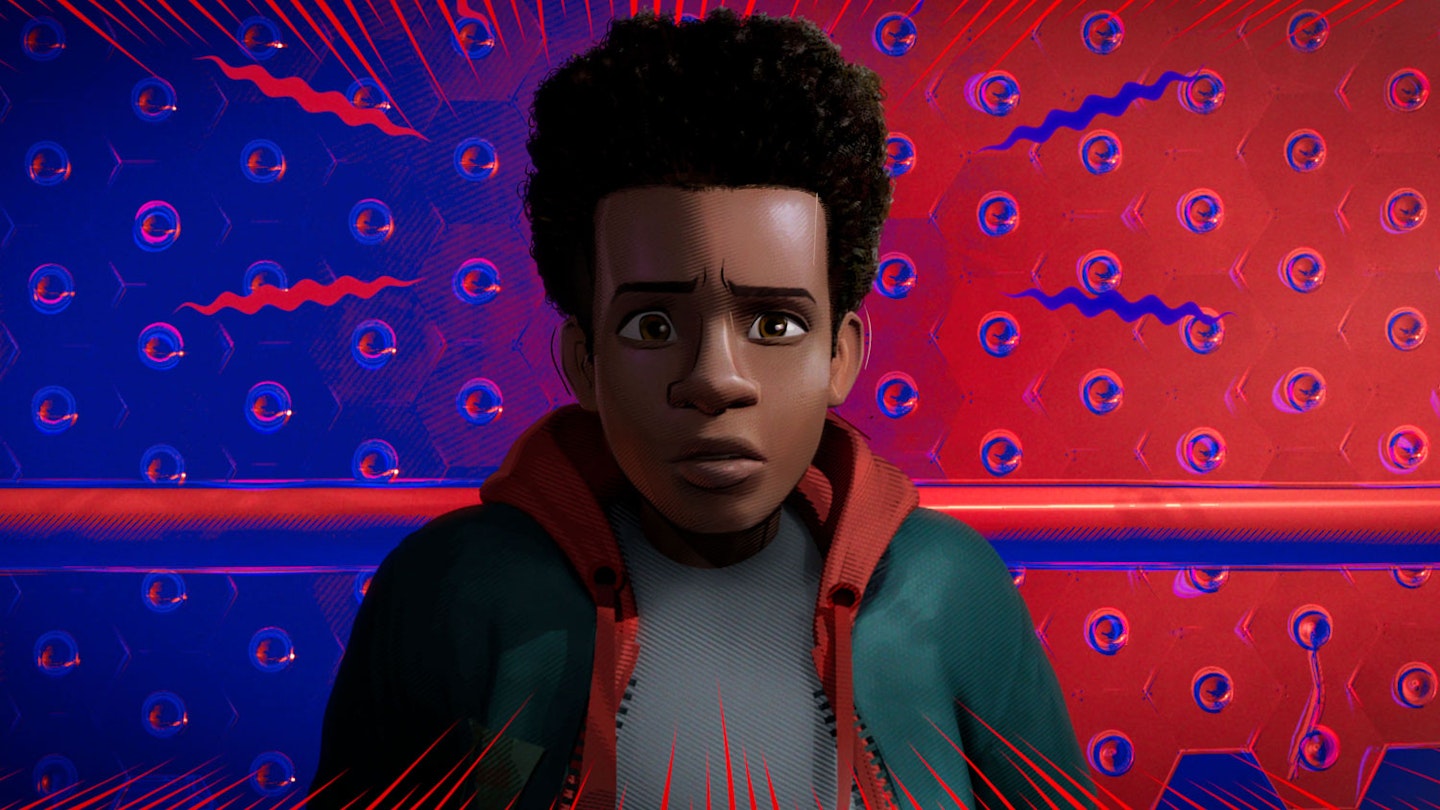
In 1995, Toy Story reinvented the mainstream animated movie, and Hollywood got stuck there. It took over 20 years for another huge studio movie to shift the paradigm – enter Into The Spider-Verse, practically inventing a whole new animation style to tell its narrative of clashing universes and multiple Spider-people. Blending 2D and 3D frames with comic book paper-stock textures, crashing different frame-rates into the same shot, and giving backgrounds an out-of-focus red-and-blue-3D tinge, it’s utterly distinct from anything else out there – and that’s before you get an anime Peni Parker sharing the screen with the Looney Tune-inspired Spider-Ham and a Nic Cage-voiced 1930s black-and-white Spider-Man Noir. All of which would be impressive enough, but the story itself – finally giving Afro-Latino fan favourite Miles Morales a cinematic outing – commits powerfully to its ‘anyone can wear the mask’ premise. The obvious fingerprints of producers Phil Lord and Christopher Miller (the former a co-screenwriter) ensure the film is as riotously funny as it is inventive, packed with self-referential gags to complement the narrative curveballs. The ultimate tribute to Steve Ditko and Stan Lee.
15. Spirited Away (2001)
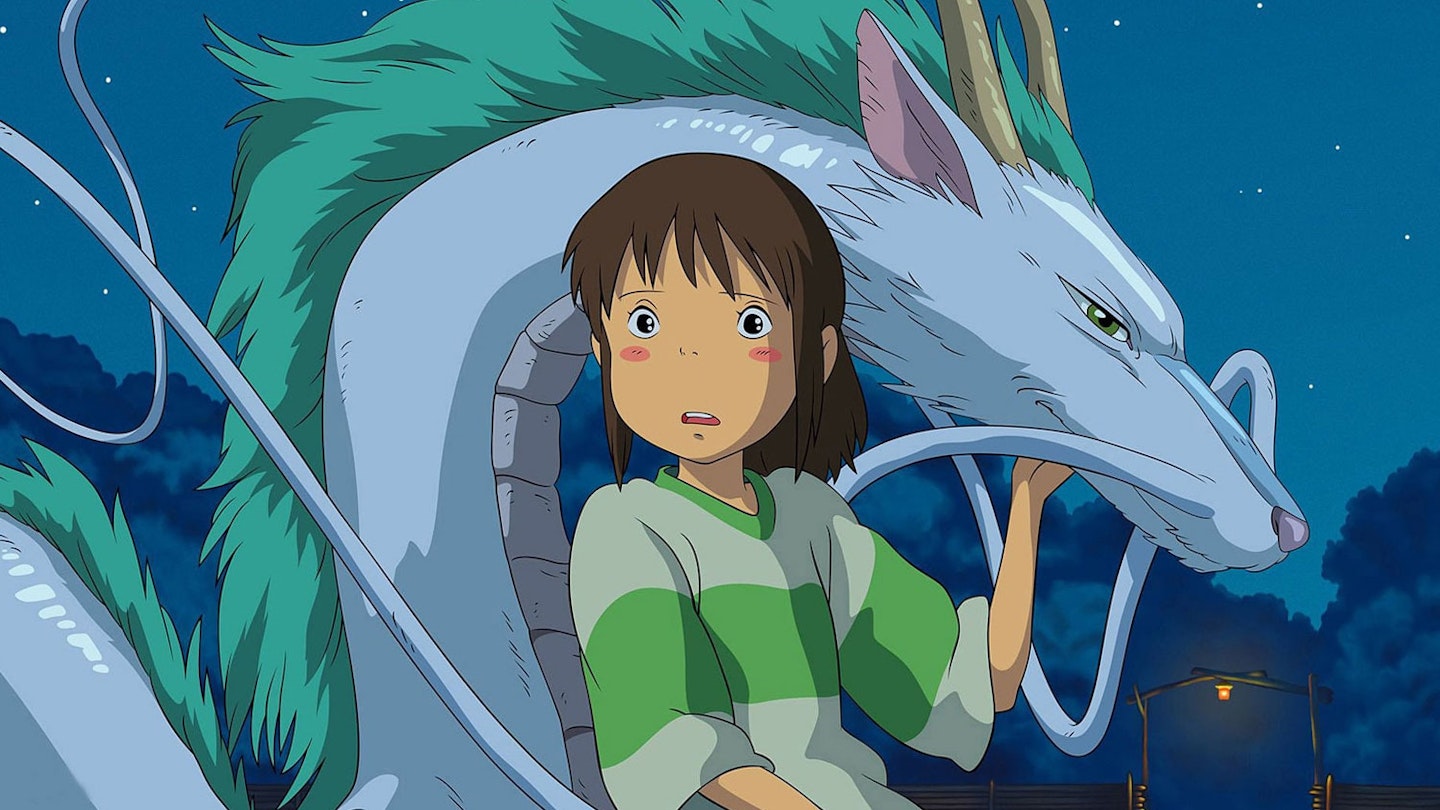
For a Western world raised on Disney movies, Spirited Away was a bracing change of pace – pure, uncut Studio Ghibli. Taking in bathhouses, spirits of Shinto folklore, and morality without clear-cut distinctions of good and evil, Hayao Miyazaki’s major crossover hit is distinctly Japanese. Its narrative arc and characters feel notably different to more conventional British and American animations – from the eerie, inscrutable No-Face, to sort-of-antagonist bathhouse owner Yubaba. But that’s also a major reason why it connected – Spirited Away is accessible, but nothing about it feels watered down. It is, of course, utterly beautiful too – boundlessly imaginative, steeped in gorgeous colour, and stunningly scored by Joe Hisaishi. Among the cultural specificity is a coming-of-age universality in young hero Chihiro, forced to fend for herself when her parents are turned into pigs, using her resourcefulness and her friendship with boy-dragon-spirit Haku to earn her freedom from the spirit world. It’s the film that brought Studio Ghibli – and anime at large – to mainstream Western audiences, an influence increasingly felt in the likes of Moana and Frozen II.
14. Eternal Sunshine Of The Spotless Mind (2004)

The single high-concept sci-fi idea underpinning Michel Gondry’s cerebral second feature is that of memory erasure. Described as "technically brain damage", it nevertheless serves as the vehicle for a meditation on romantic connection, communication, and the role of remembering in our humanity and personalities. This is screenwriter Charlie Kaufman at his most playful and intricate, but also his most disciplined. Eternal Sunshine is not a film that would work if its structure wasn’t watertight, making it all the more impressive that the story, while tortuously complex in terms of its timelines, is never impenetrable. It’s a tribute also to Gondry’s deft direction and Valdis Oskarsdottir’s dextrous editing, and the performances of Jim Carrey (profitably extending his range as he did in The Truman Show and Man On The Moon) and Kate Winslet. You know that old set-up: an introvert and an extrovert walk onto a train…
13. Whiplash (2014)
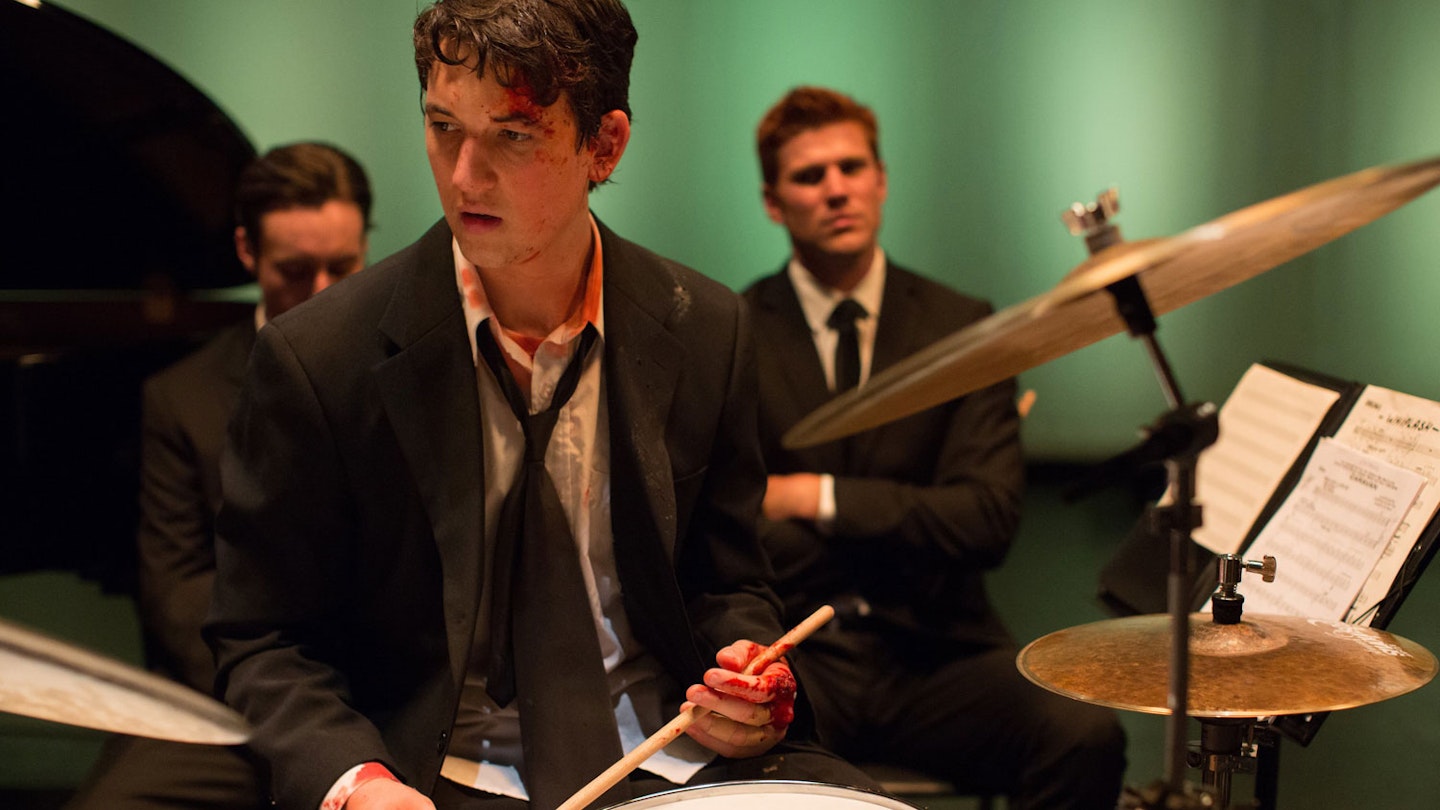
As tight as a snare, as bracing as a cymbal-crash, and with tension to make your heart pound like a bass drum – Damien Chazelle’s directorial debut proper proved the world of jazz drumming really could be the making of an instant-classic thriller. Miles Teller is Andrew, the student willing to thrash it out on the drumkit until his hands bleed, and JK Simmons is Terence Fletcher, the teacher intent on pushing him through hell in order to achieve greatness – a frantic and ferocious exploration of toxic masculinity across generations. As a succession of psychological battery turns into a battle of wills, Chazelle ratchets up the frenzied intensity with total control – delivering an astonishing final act that’s as cathartic as it is cardiac-arrest-inducing. Coming from Blumhouse, the production company more associated with well-honed jump-scare movies like Insidious and Sinister, it doesn’t feel out of place to call Whiplash a near-horror movie. Never rushing, never dragging – it’s exactly our tempo.
12. No Country For Old Men (2007)
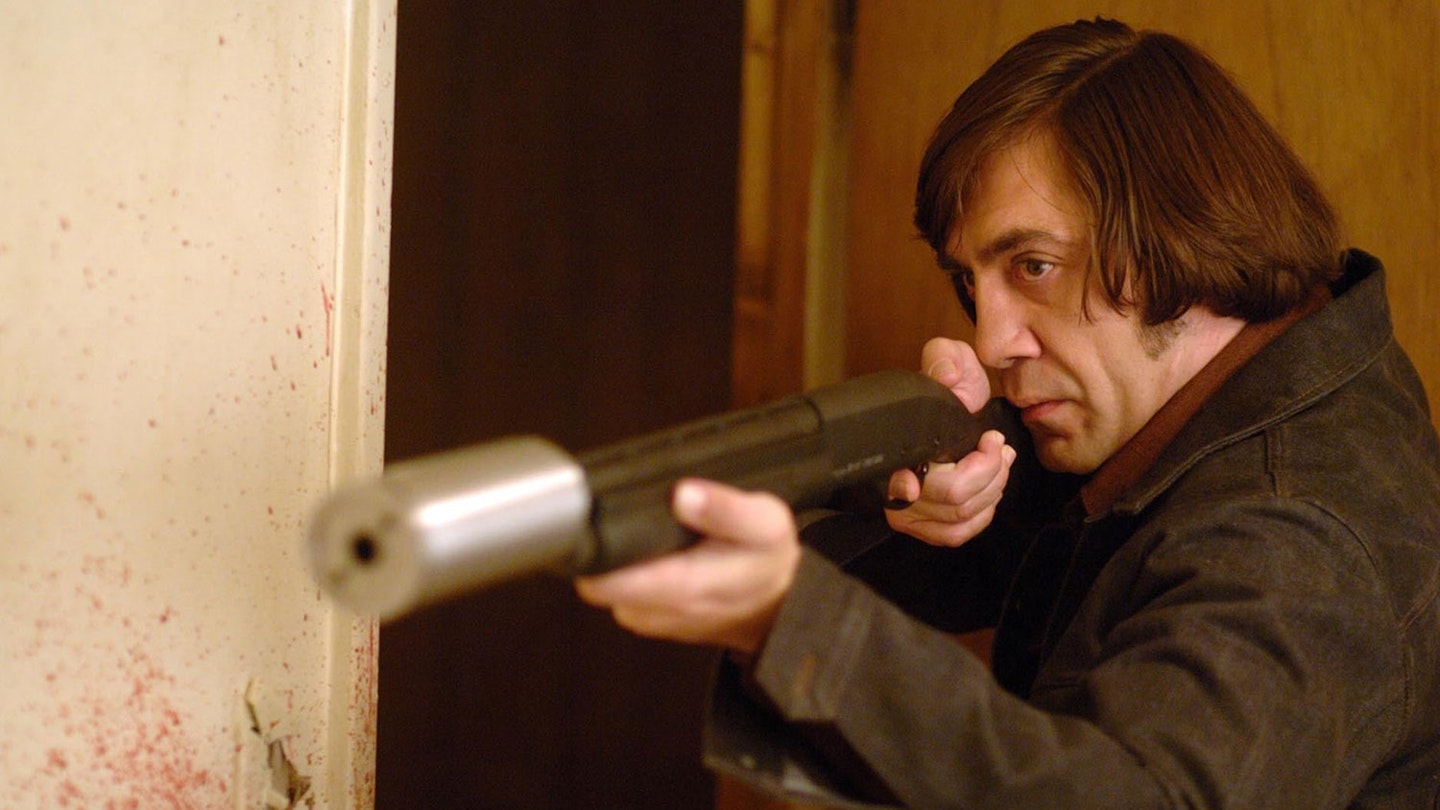
No Country For Old Men stands as the best film made by the Coen Brothers after the turn of the millennium – which is saying something, given the career that Joel and Ethan have had over the last 20 years. Their adaptation of Cormac McCarthy’s novel is a slow-burner in every sense, and after letting it digest for a decade or more, it’s abundantly clear that it’s the brothers’ magnum opus: a slow, strange, nihilistic masterpiece. The Coens’ dark, violent tendencies mesh perfectly with McCarthy’s bleak, existential themes. Told with Roger Deakins’ coldly compelling camerawork and a trio of career-best performances from Tommy Lee Jones, Javier Bardem and Josh Brolin (who almost never share the screen but haunt each other to varying degrees), it feels like a quiet, tense grapple for the soul of humanity. And like Sheriff Bell’s dream, recalled at the end of the film, this is a dark mysterious story, with no happy resolve.
11. There Will Be Blood (2007)
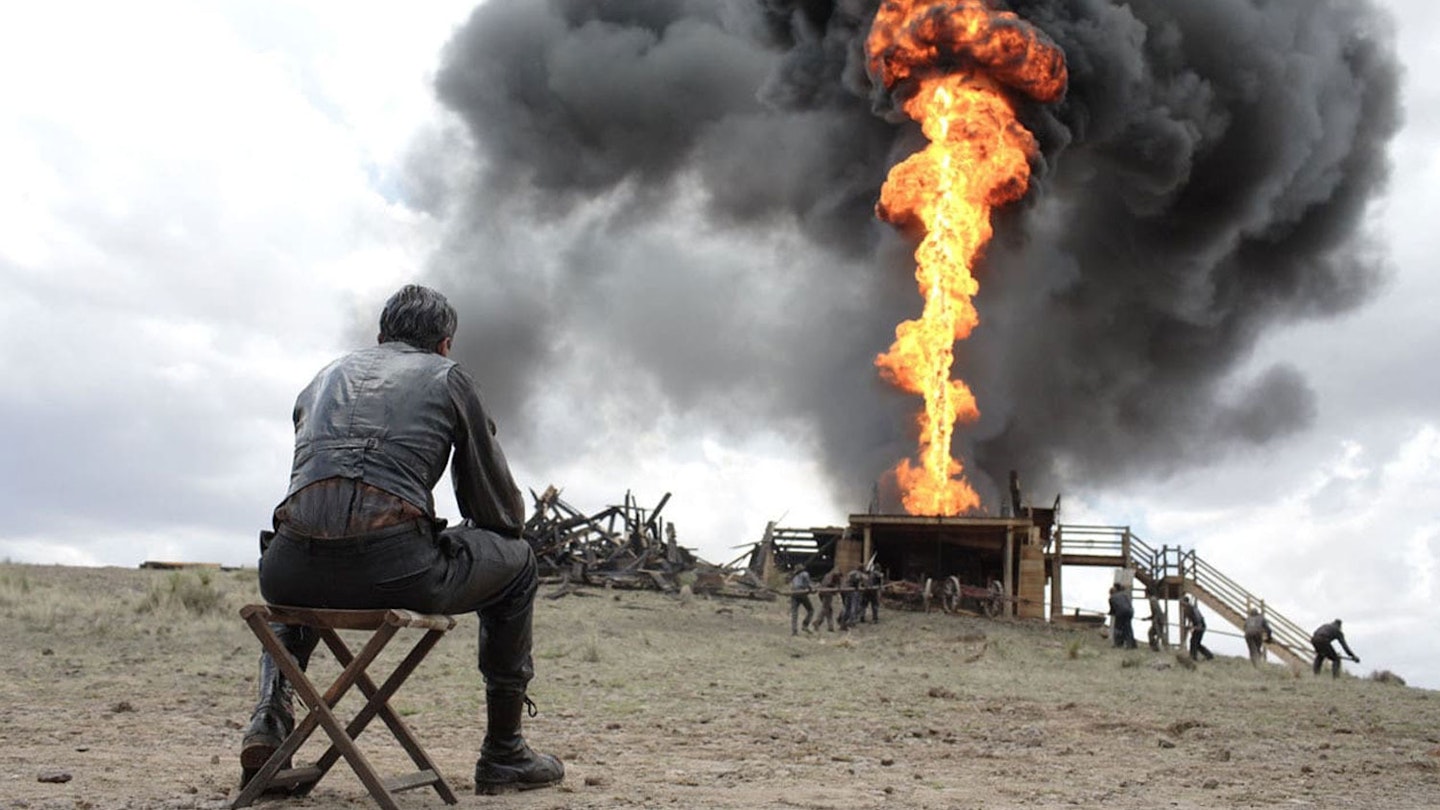
The imagery of Paul Thomas Anderson’s quasi-Western couldn’t be more evocative: oil, fire, blood, and Daniel Day-Lewis clawing his way through it all with a Cheshire cat grin, the evils of Capitalism incarnate. It begins with several minutes in which his Daniel Plainview scrabbles around in a hole, and only gets more uncompromising from there – sticking you with his hateful, amoral, but utterly mesmeric villain for nearly three hours. Day-Lewis is transcendent as the prospecting American devil, a shambling, screaming horror of a man (“I told you I would eat you!”) who sees everything and everyone around him as something to be exploited, milkshake that he can drink up – a force of drainage and consumption who cannot and will not be stopped, consequences, quite literally, be damned. It’s a performance and a film that chews you up before spitting you out, exhausted and drenched with inky black oil, on two simple words: “I’m finished”.
